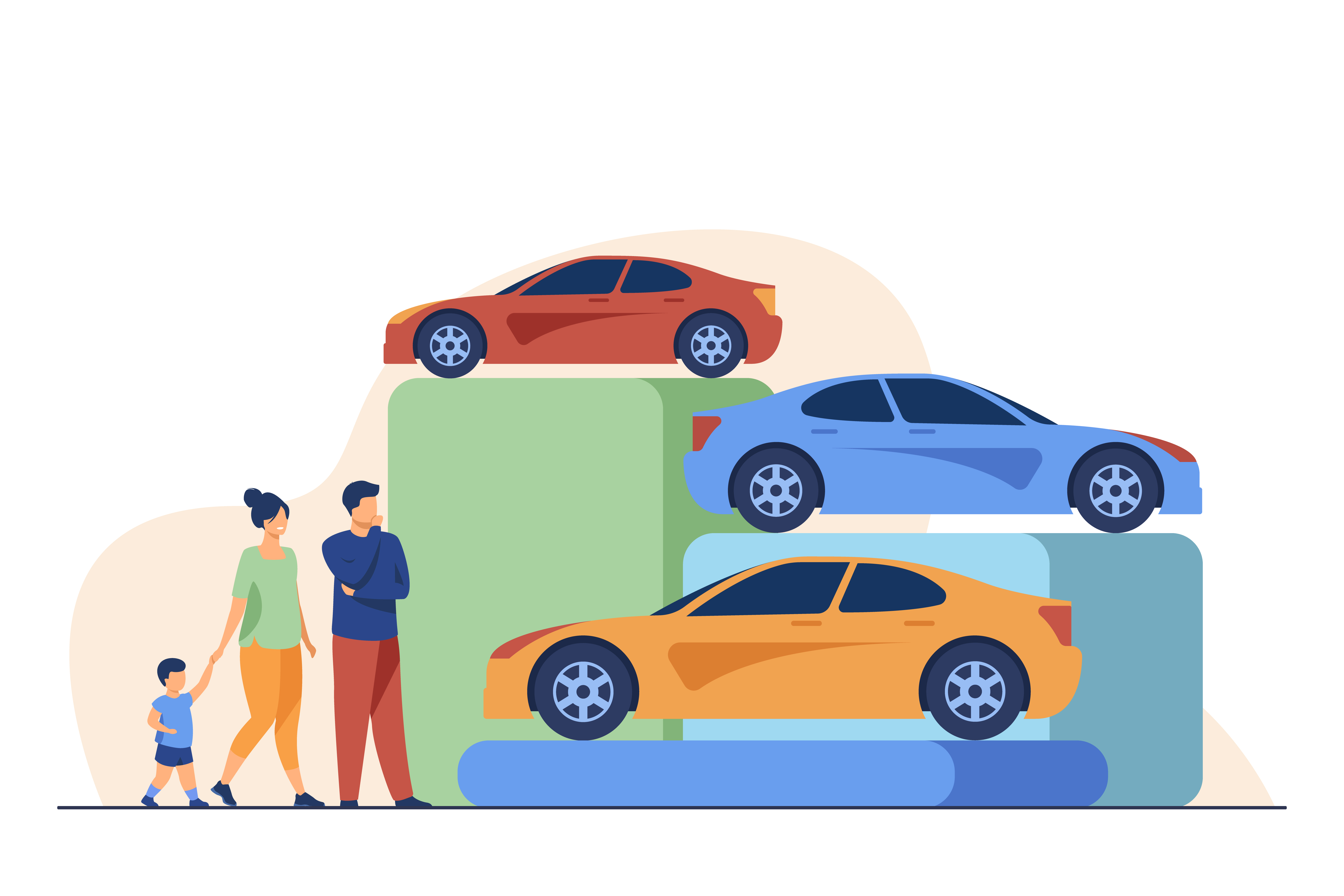New Car vs Used Car: Making the Smart Choice

Choosing between a brand-new car and a pre-owned one is a big decision. Both have their own pros and cons. Let's break it down:
New Car: The Appeal of the Brand New
Buying a new car is exciting! That fresh car smell, the latest features, and the feeling of driving something fresh off the assembly line are hard to beat.
Pros:
Peace of Mind:
New cars come with a manufacturer's warranty, covering repairs for a certain period. This reduces the worry about unexpected mechanical issues.Cutting-Edge Tech:
Enjoy the latest safety features like lane departure warning and blind-spot monitoring. You'll also have the newest infotainment systems with large screens and easy smartphone integration.Easy Financing:
Banks offer attractive loan options with competitive interest rates for new car purchases, making it easier to afford.Customization:
Choose your favorite color, add-ons, and make it truly yours.Better Resale Value:
While value drops over time, new cars generally hold their value better than used cars in the initial years.
Cons:
High Cost:
New cars are significantly more expensive than used ones.Depreciation:
The moment you drive it off the lot, its value starts to decrease.Higher Insurance:
Expect to pay more for insurance on a new car.Environmental Impact:
Manufacturing a new car has a greater environmental impact compared to refurbishing a used one.
Used Car: Value for Money
For budget-conscious buyers, a used car is a great option.
Pros:
Cost-Effective:
Used cars are much more affordable, allowing you to buy a higher-end model or save a significant amount of money.Lower Insurance Costs:
Insurance premiums for used cars are generally lower due to their lower value.Eco-Friendly:
Buying used is better for the environment as it reduces the demand for new car production.Negotiation Power:
You can often negotiate the price more effectively with a used car seller.
Cons:
Uncertainty:
There's a risk of hidden mechanical problems or a history of accidents.Limited Warranty:
Manufacturer warranties may not transfer to the new owner, and extended warranties can be expensive.Older Technology:
You may miss out on the latest safety features and tech.Finding the Right One:
Finding a reliable used car can take time and effort.
Factors to Consider:
Budget:
Determine how much you can comfortably afford to spend, including not just the purchase price but also insurance, fuel, and maintenance.Driving Needs:
Consider your daily commute and how much you drive.Lifestyle:
Do you prioritize the latest features or prefer to save money?Risk Tolerance:
Are you comfortable with the potential risks associated with buying used?
Car Insurance: A Key Consideration
Car insurance is essential for both new and used cars.
New Cars:
Typically require comprehensive coverage, protecting against theft, accidents, and natural disasters. This often means higher insurance premiums.Used Cars:
Might have lower insurance premiums, but comprehensive coverage is still recommended.
Factors Influencing Premiums of Car Insurance:
Car's Age and Model:
Newer cars generally have higher premiums due to their higher value and potential for more expensive repairs.
Driving History:
Drivers with a claim history (accidents etc.) usually pay higher premiums than drivers with a clean driving record.
Location:
Where you live significantly impacts your insurance rates. Factors like crime rates, population density, and the frequency of accidents in your area all contribute to your premium.
Level of Coverage:
The type of coverage you choose (liability or comprehensive) directly affects your premiums.
Liability: Covers damage to other people's property or injuries to others in an accident.
Comprehensive: Covers damage to your vehicle from collision and non-accident causes, such as theft, vandalism, or natural disasters.
Disclaimer:
This information is provided for general knowledge and informational purposes only. It is not intended as financial or insurance advice and should not be relied upon as such. The content presented here may not be applicable to all situations and may not reflect the most current changes in financial or insurance regulations. It is essential to seek professional guidance from qualified financial advisors or insurance agents for personalized advice that addresses your specific circumstances and needs.


